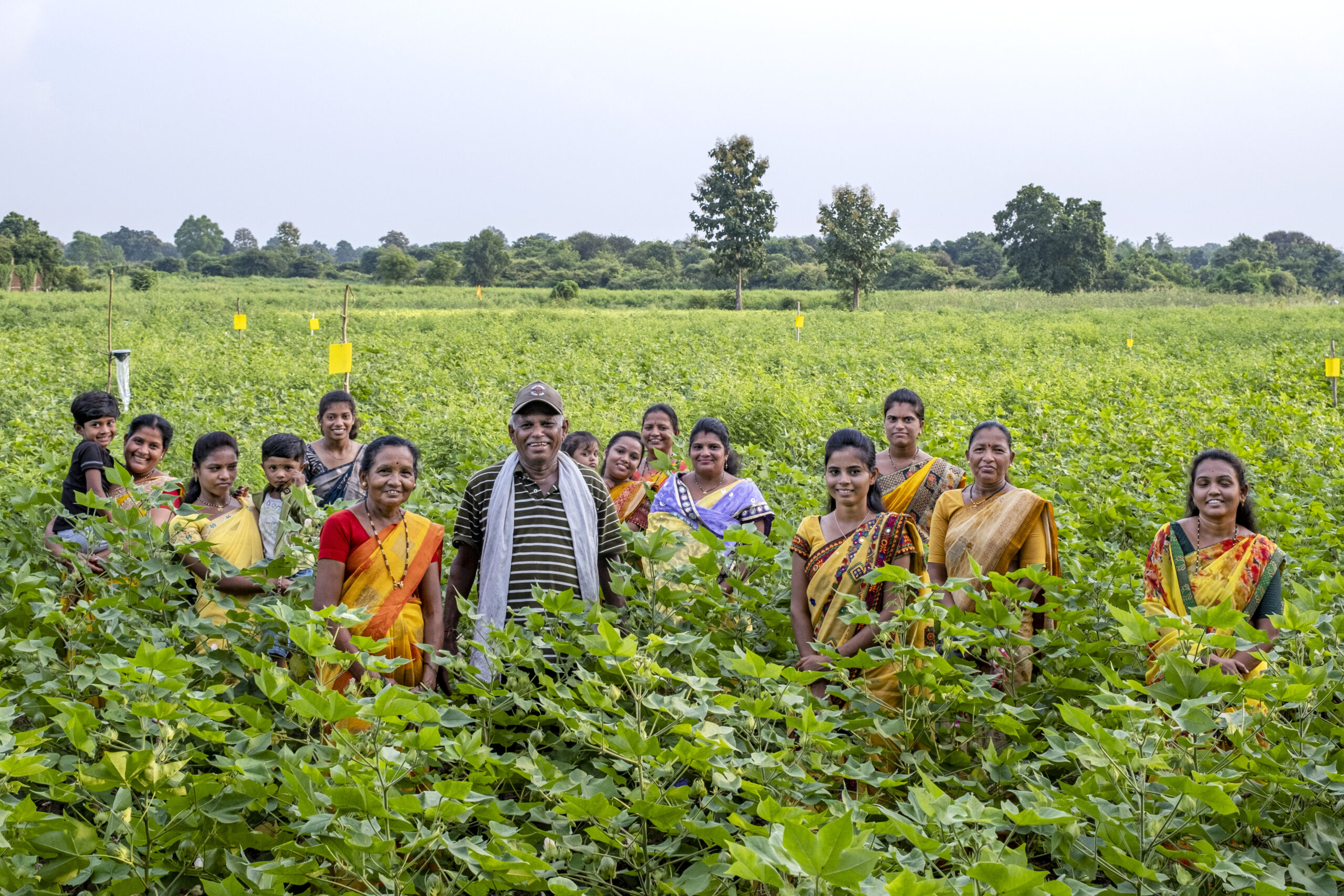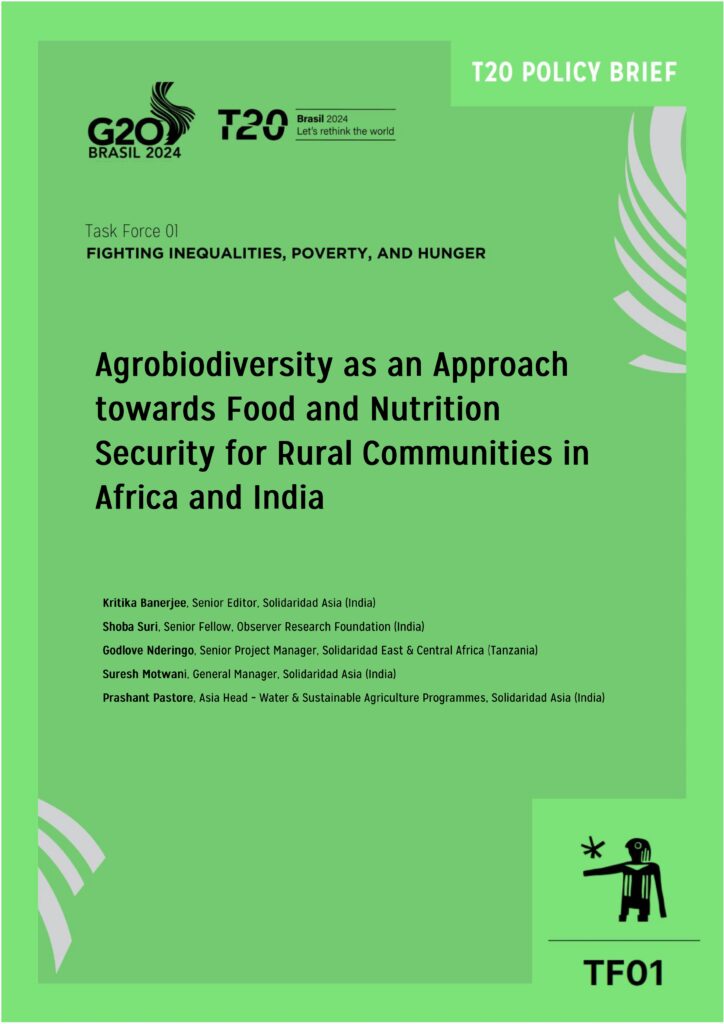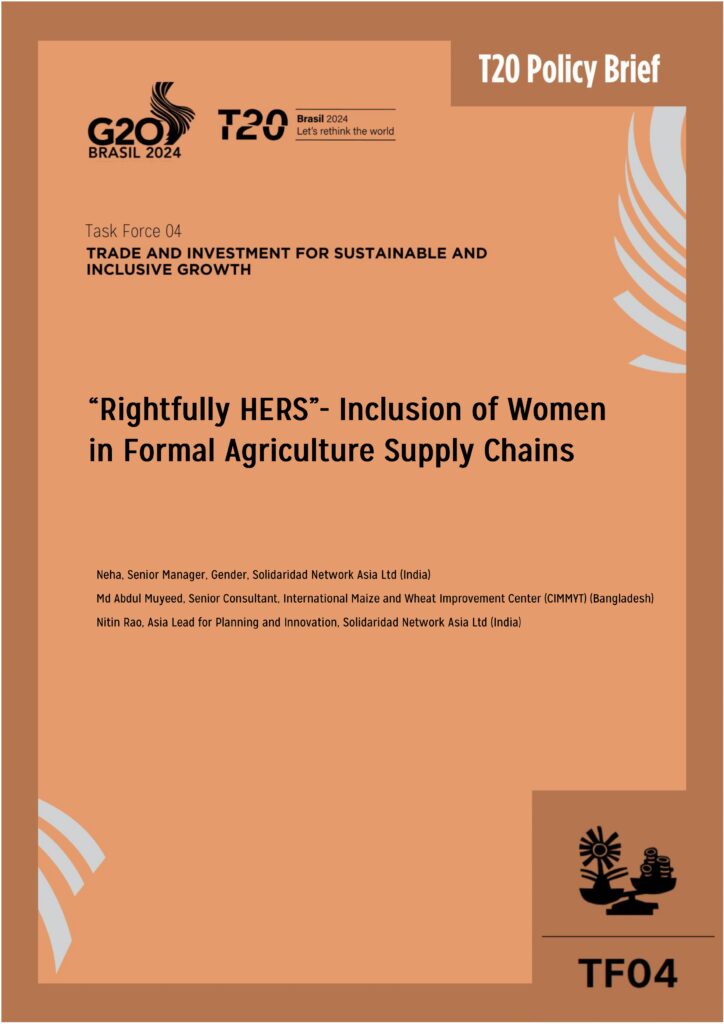Highlights
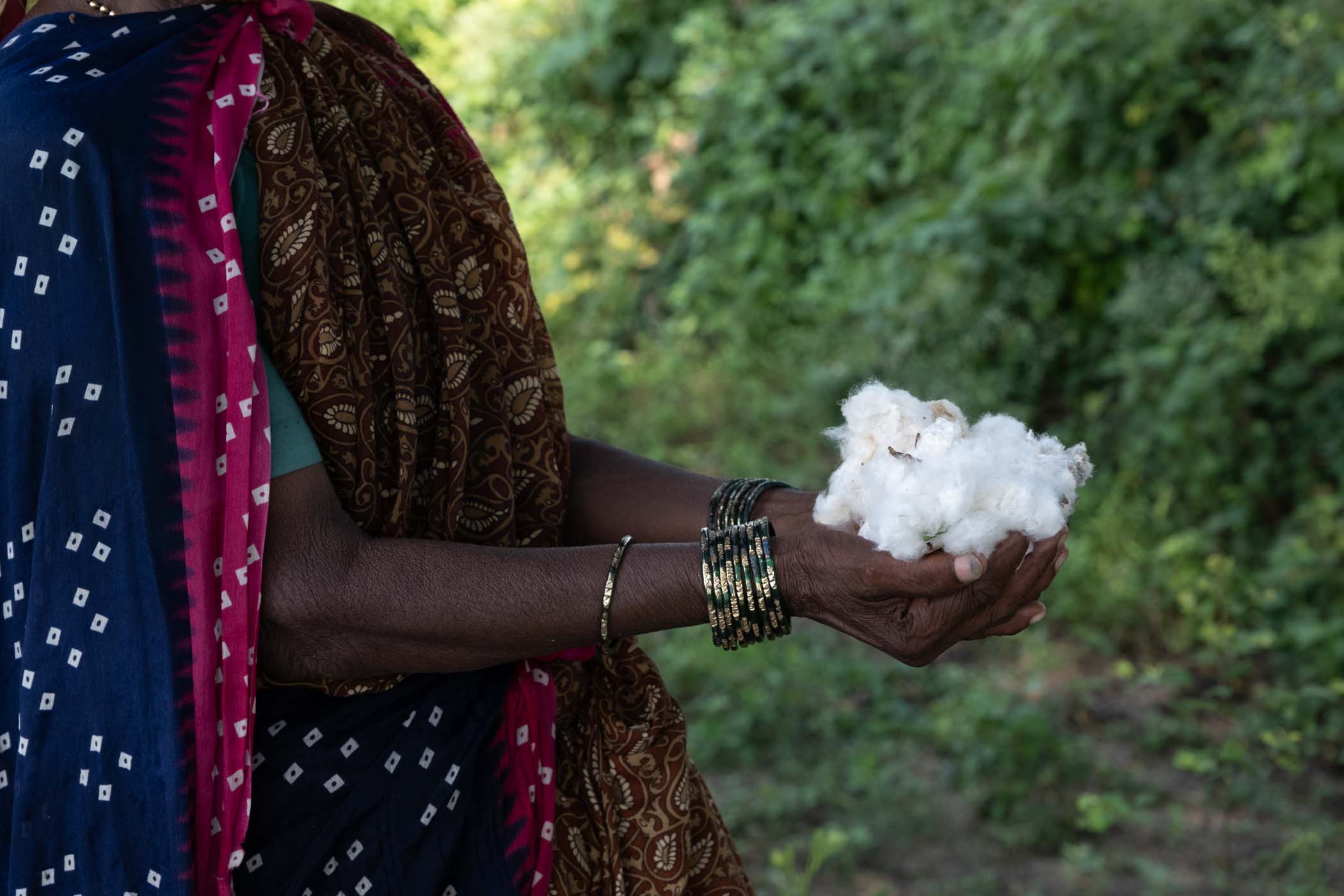
210,646 cotton farmers in India through adoption of the Solidaridad-promoted regenagri standard and NPOP organic cotton standard are moving towards net-zero cotton cultivation. Regenerative practices have helped farmers reduce chemical use, bringing input costs down 12-13%. Biodigesters are helping a small farmer family save nearly €200/year on cooking gas and the organic slurry is enriching their farms. Further, each biodigester has a GHG emission avoidance potential of 5 to 6 tCO2-eq per year/unit.
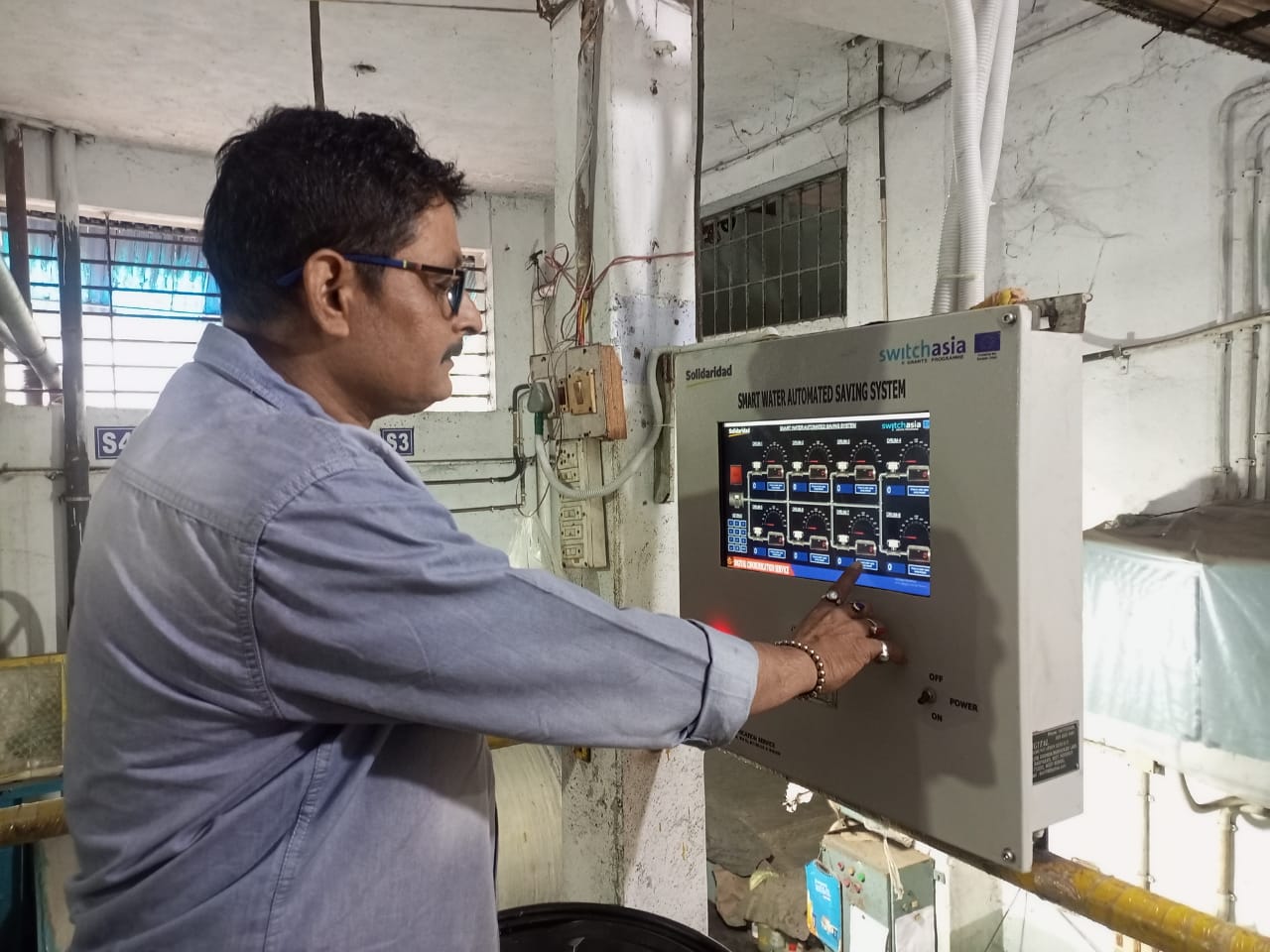
By adopting green tech, 948 billion litres of water were saved—equivalent to 380,000 Olympic pools. Untreated effluent discharge dropped 41%, aligning with localized water sovereignty principles. Circular economy interventions have collectively led to a reduction of 1,181 tCO2-eq annually, in leather processing units. This protects ecosystems while ensuring industries serve both public and private interests.
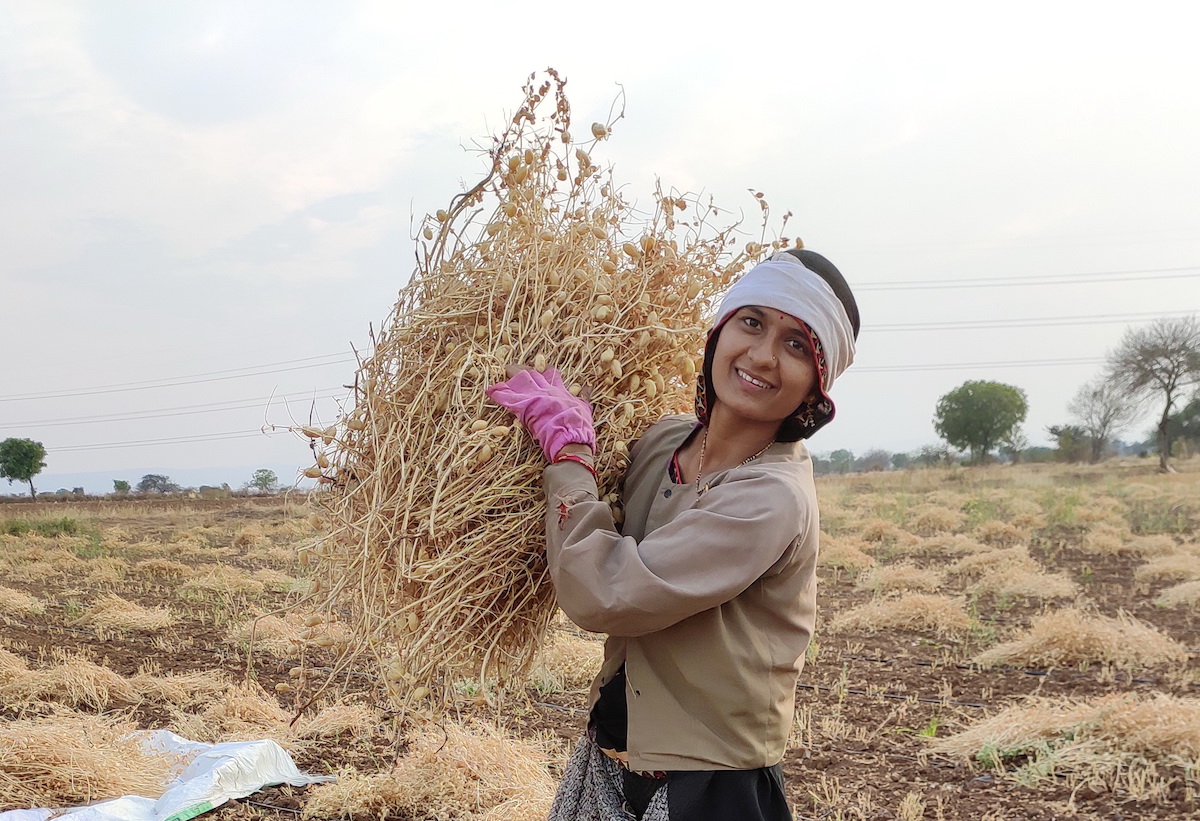
Consistent with the democratic economy concepts of community ownership and equitable benefit distribution, Solidaridad strengthened the market access for soybean farmers. In Bangladesh, direct pConsistent with the democratic economy concepts of community ownership and equitable benefit distribution, Solidaridad strengthened the market access for soybean farmers. In Bangladesh, direct procurement of 105,000 MT soybeans secured farmers 15% above-market prices. In India, 20,000 farmers bypassed exploitative middlemen through Madhya Pradesh’s democratic farmer producer organization networks, leading to better price realization for farmers and better quality, traceable produce for buyers/consumers.
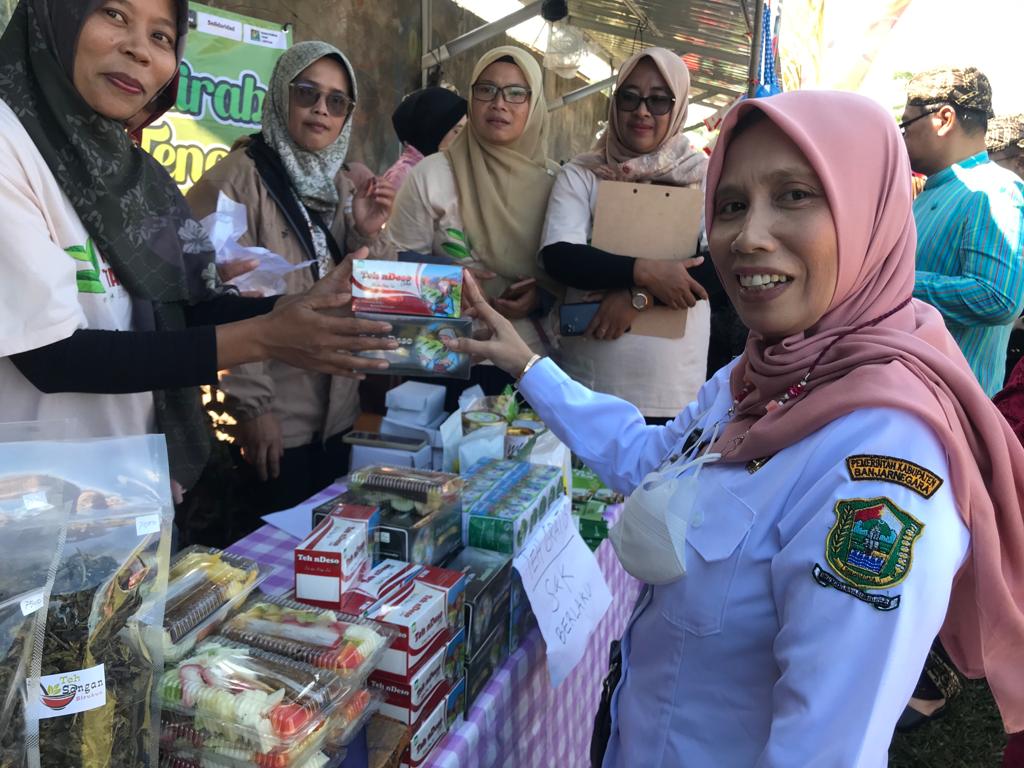
Small farmer-company tea brands Teh nDeso and Teh Juwara have established an alternate supply chain in Indonesia, tapping into rural markets where tea drinking is a habit and promoting a rural entrepreneurship model focusing on women. Women have become micropreneurs by selling the smallholder tea to their immediate local markets. Currently, 941 micropreneurs sell and promote Teh Juwara and Teh nDeso. By prioritizing local markets and women’s agency, this model counters corporate monopolies, embodying “feminization of the economy”.
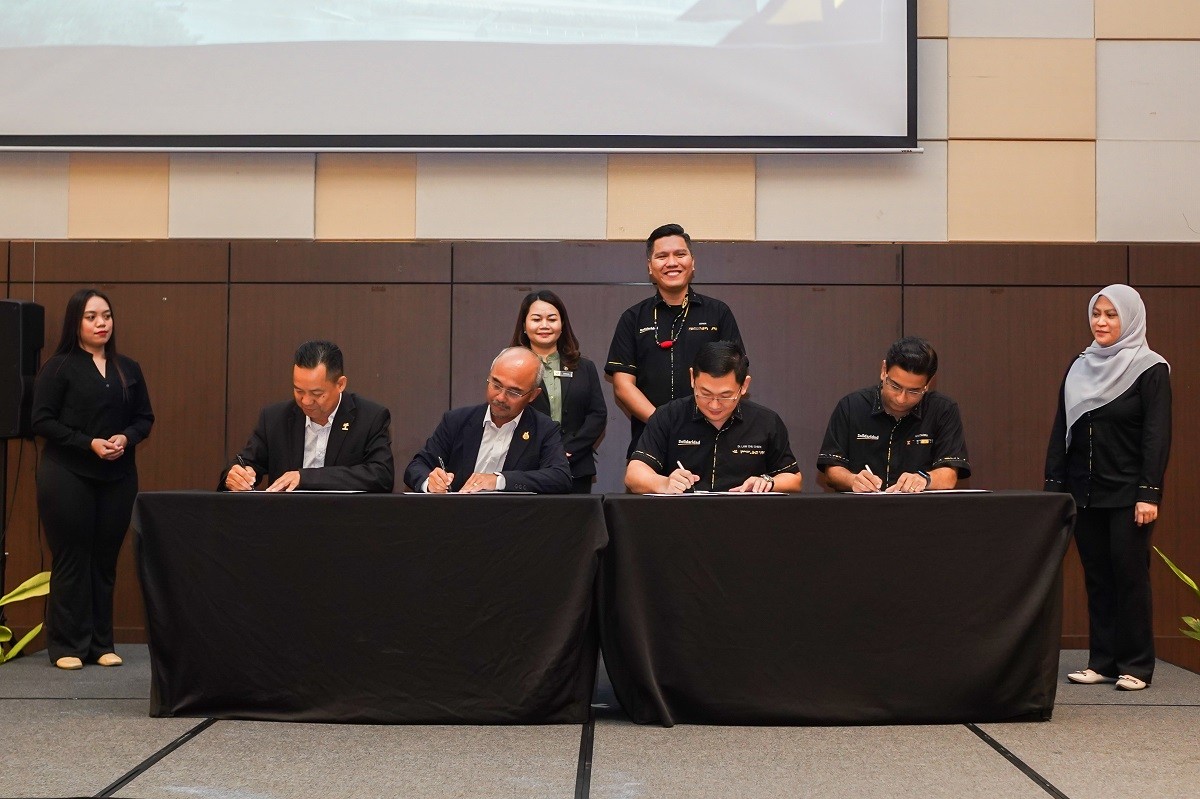
Through a formal partnership with key palm stakeholders in Malaysia (DOPPA, PVATM and NASH), Solidaridad aims to enhance access to international markets for smallholders, achieve and maintain Malaysian Sustainable Palm Oil certification, implement smart agricultural practices contributing to national and global climate goals, explore innovative mechanisms for farm diversification and carbon farming, and provide training to improve smallholders’ skills.
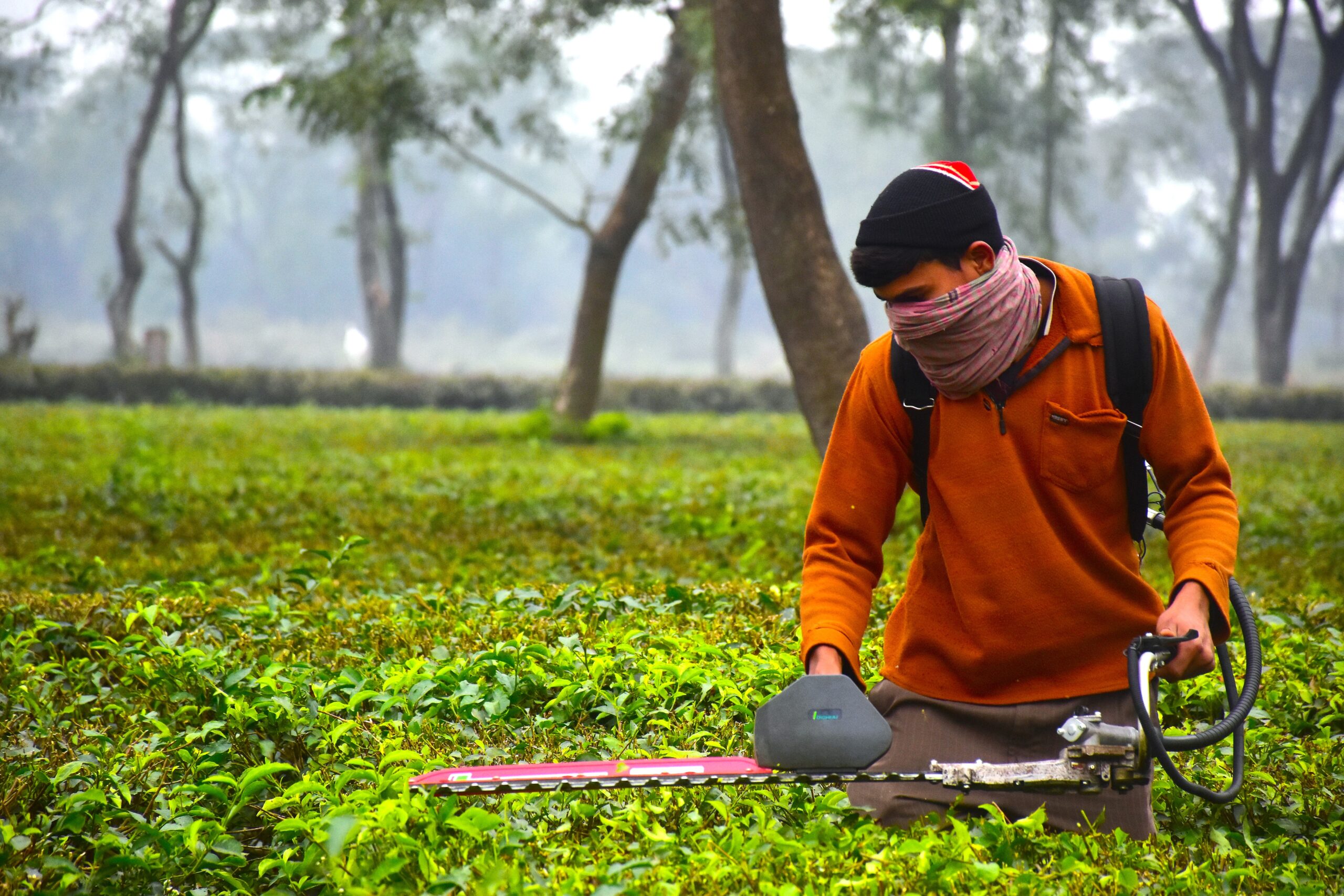
Recognizing the inequities embedded in conventional market structures, Solidaridad supported tea growers in Bangladesh to advocate successfully for fairer pricing mechanisms. As a result, the Bangladesh Tea Board mandated a minimum price for tea leaves, ensuring economic justice and greater predictability for smallholder farmers, an outcome resonant with the democratic economy ideals. We have successfully lobbied with the Bangladesh Tea Board to issue a directive that stipulates a minimum price of BDT 18 (Euro 0.13) per kg for green leaf and BDT 160 (Euro 1.20) per kg for made tea at auction, reducing the uncertainty for smallholders.
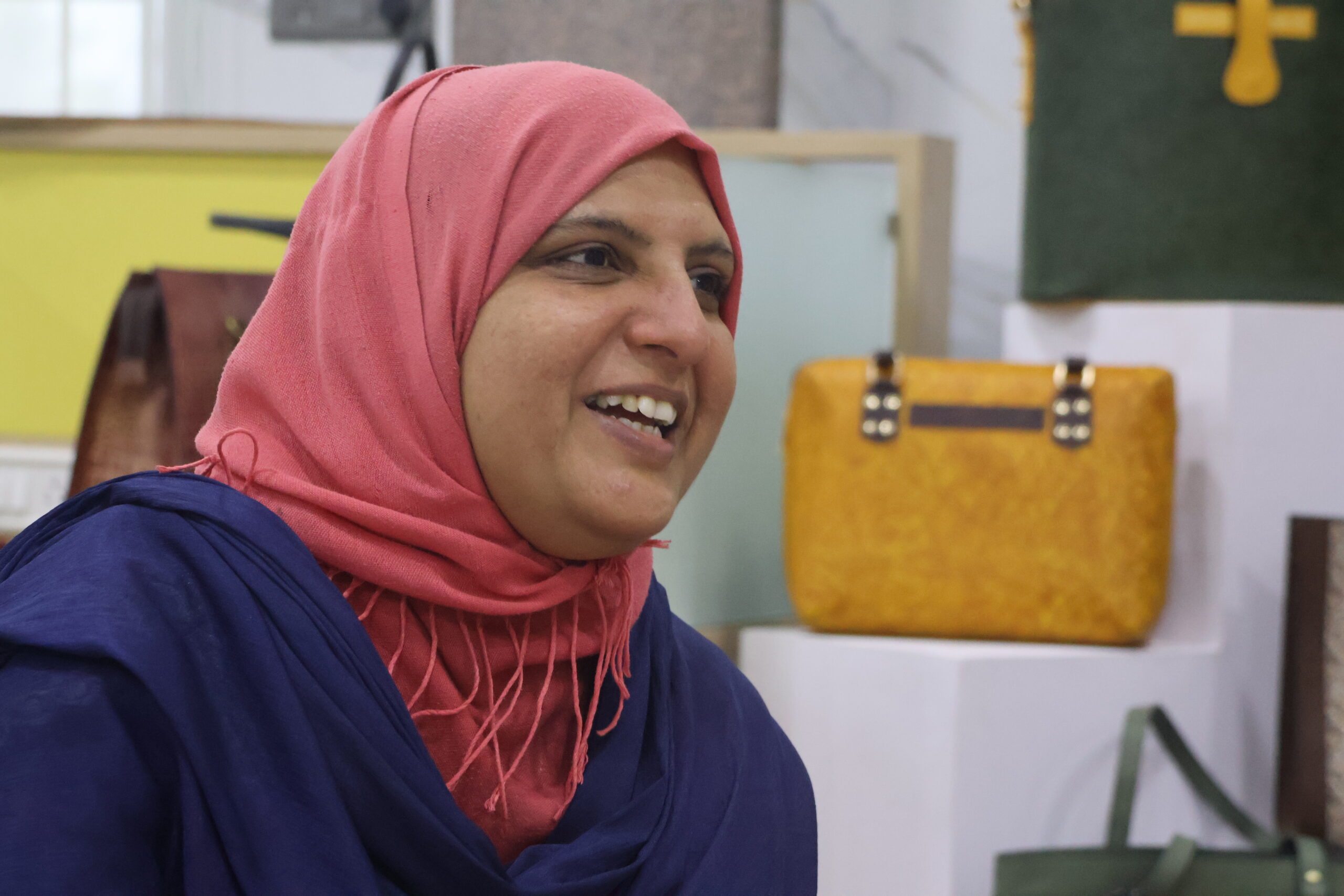
In Asia, 4,011 direct jobs supported women. This comes as a result of the creation of women farmer producer organizations and focused support in skill training and market connections to individual women entrepreneurs to create viable enterprises.
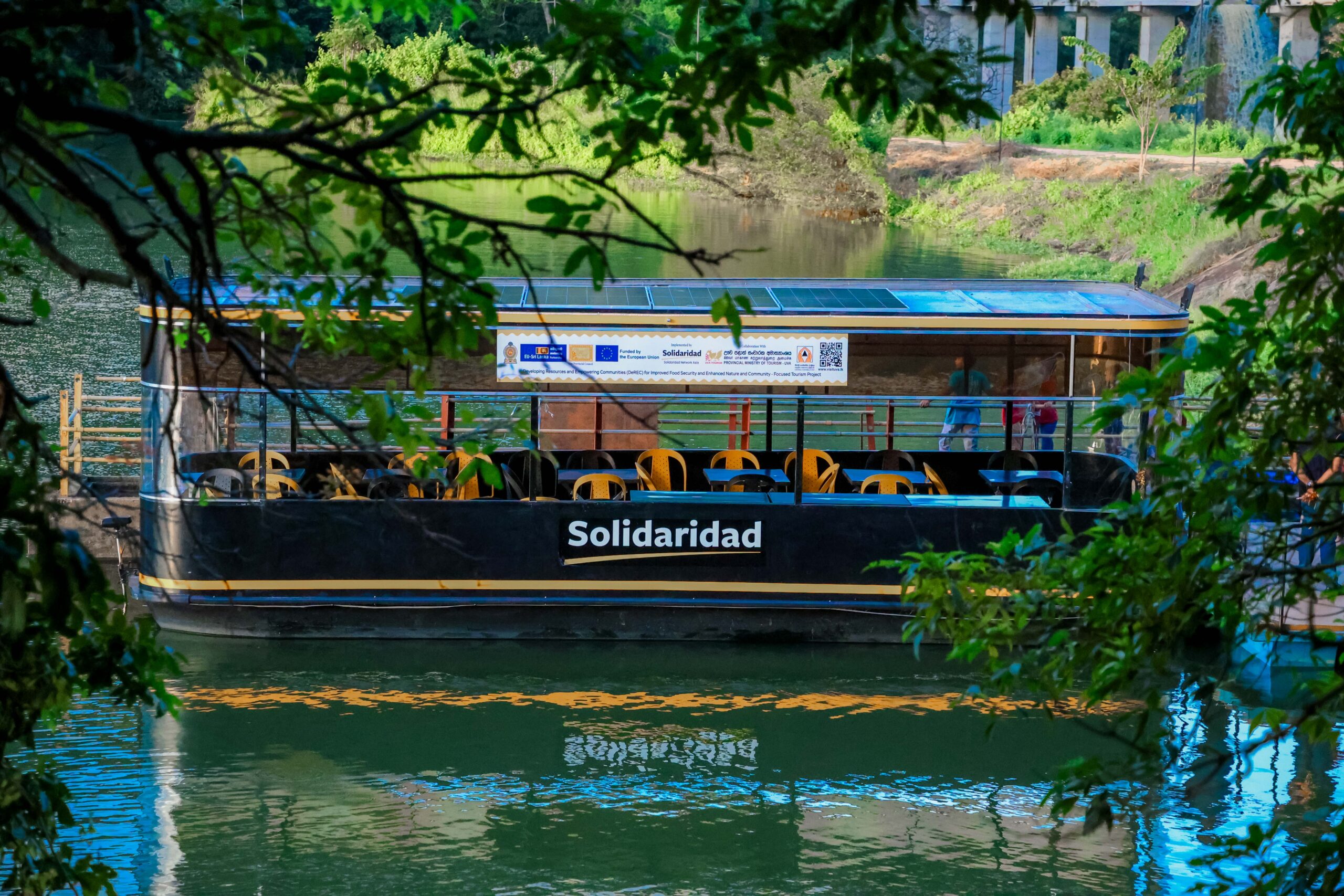
In a first, Solidaridad was invited by the government to develop the National Standard for Sustainable Tourism in Sri Lanka. The Standard focuses on livelihood creation while preserving the environment and the island country’s biodiversity.
Results

1 million
farmers with improved yields

1.2 million
hectares under Good Agricultural Practices

177,942
workers and miners under improved working conditions

319,565
farmers with access to improved services

193
corporates testing solutions with Solidaridad

436
processors who have reduced pollution
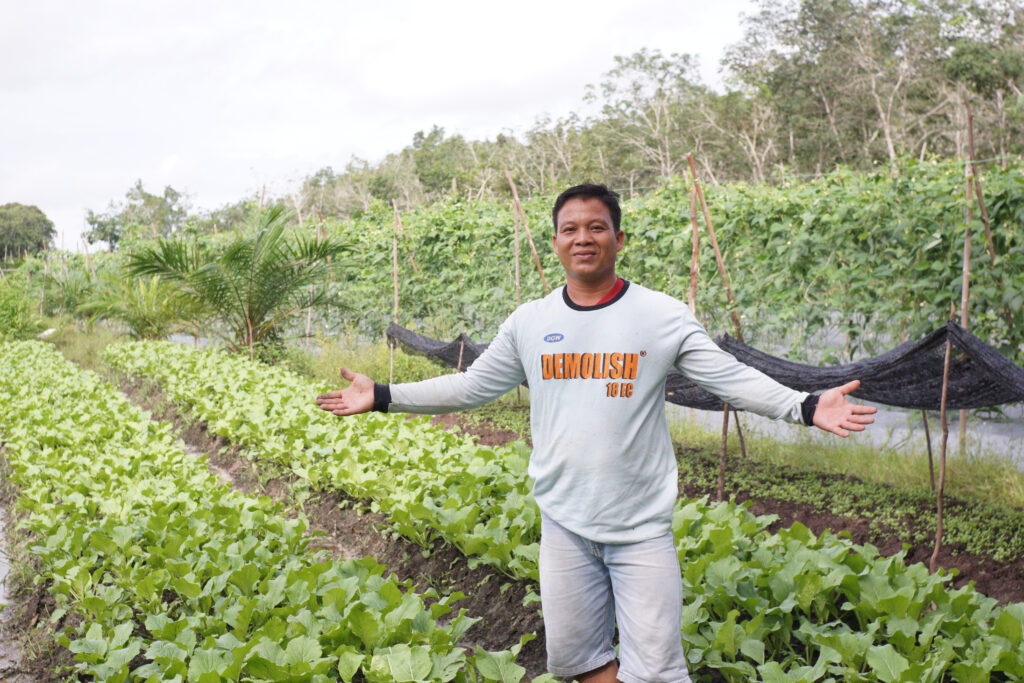
Results across 4 areas
Regenerating earth, respecting planetary boundaries, securing livelihoods
The four pathways—good practices, a supportive business ecosystem, an enabling policy environment, and increased market uptake—continue to guide us in achieving our end goal of building sustainable and healthy ecosystems. The results demonstrate our efforts to support farmers and workers to achieve economic independence and social well-being.
Our efforts resulted in increased income while empowering 1.4 million smallholder farmers to transform 1.2 million hectares through regenerative practices—boosting incomes for 588,809 rural households.
Several important innovations were introduced, from India’s net-zero cotton fields to Sri Lanka’s pioneering Sustainable Tourism Standard. We slashed water use by 948 billion litres in leather and textiles, turned tannery waste into climate action, and connected 20,000 soybean farmers to fair markets. Rural women emerged as business leaders: 4,011 jobs created, and 941 micro-entrepreneurs brewing success with homegrown tea brands. Partnering with international companies like Cargill and WE Fashion, we bridged grassroots resilience with global demand, proving sustainability and equity can fuel a thriving future—one harvest, one community, at a time.
In South Asia, 43% of the agricultural land is degraded, and crop and livestock production accounts for 69% of the total GHG emissions. In Asia, Solidaridad is supporting farmers to adopt regenerative agricultural practices, which have emerged as a viable pathway for securing farmer livelihoods while improving soil health, bringing efficiency to water use on farms, and encouraging biodiversity. We also supported micro, small, and medium sized enterprises in adopting efficient practices and clean technologies that reduced their environmental footprints.
- 1,433,740 farmers have been trained in regenerative agricultural practices, establishing regenerative farming as the norm in Asia.
- 1,202,189 hectares of land has come under sustainable management across Asia.
- 588,809 farmers reported an increase in their farm income, validating that sustainable and regenerative farming has led to improved economic outcomes for smallholder farmers.
- 436 processors were able to reduce pollution through adoption of environment-friendly practices and technologies which reduced discharge of effluents and promoted recycling of waste.
- 1,181 tCO2-eq emission reduction by leather processors as a result of reduced pollution and conversion of waste into value-added products.
- 177,942 workers are under improved working conditions as a result of Solidaridad interventions on decent work in farms and MSME units.
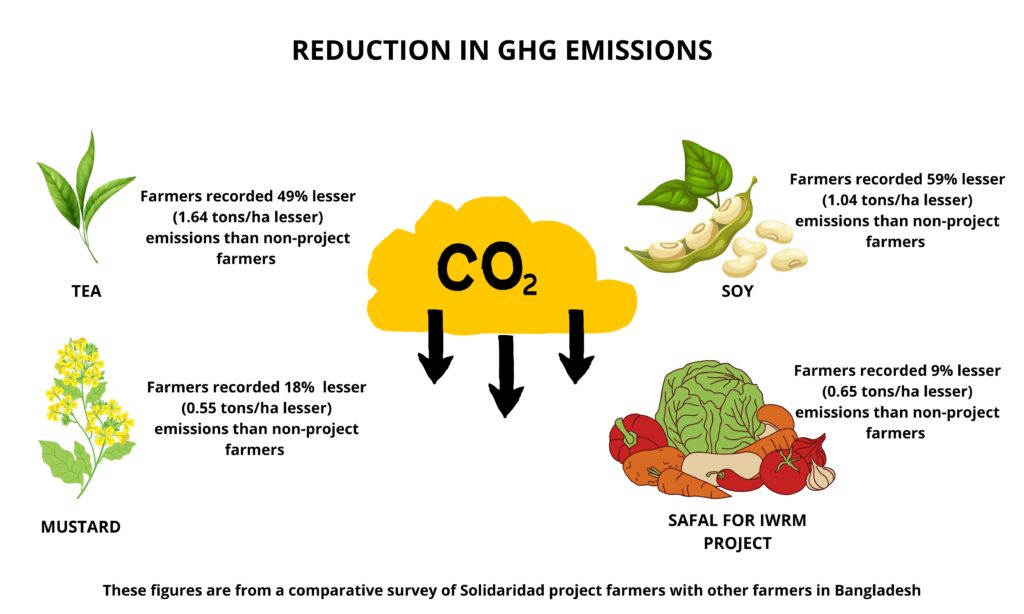
The focus of Solidaridad Asia has been farmer collectivization through farmer producer organizations (FPOs) and creating consortiums and federations of FPOs as a model of promoting democratic economic development and alternative markets that allow farmers to benefit from economies of scale and participation in higher value chain opportunities. We also supported training and improvement of skills to generate employment in rural areas.
- 319,565 farmers reported having received new or improved services from service providers supported by Solidaridad, and at an affordable price.
- 6,331 farmers became co-owners in the supply chain, improving their income through diversified livelihood options.
- 236 entrepreneurs were supported to build a financially viable business model. They received support on different trades, including agricultural inputs, seed production, vermicompost, grain trading, and improved skills on bookkeeping, financial management and business planning.
- 27,249 jobs were directly generated through Solidaridad’s training interventions.
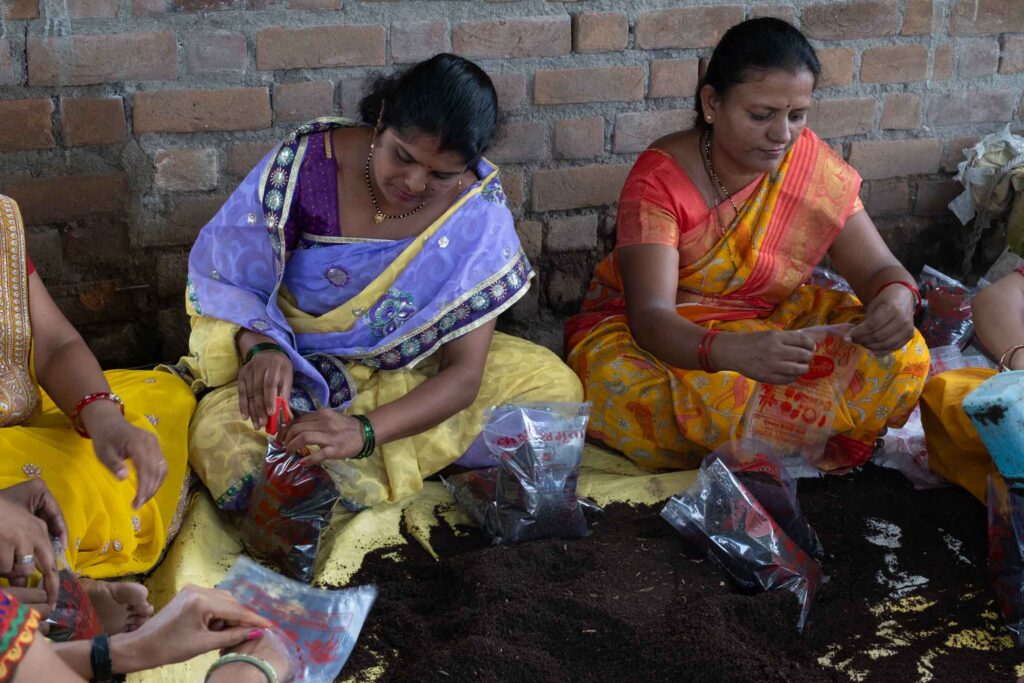
While farmers and workers are the bedrock of sustainable supply chains, they have little say in policies that determine their future. In Asia, interventions were aimed at fostering and amplifying the voice of democratic and independent smallholder organizations while advocating for fair pricing mechanisms through policy recommendations.
In 2024, the Asia Tea Alliance members adopted a regional strategy that emphasized adoption/promotion of regenerative agriculture to tackle environmental degradation and reduce the tea sector’s carbon footprint by 30%, by 2030. To bridge the gap between scientific research and on-ground implementation, a taskforce has been established with experts from national tea research institutes to address pest issues and develop climate-resilient tea varieties.
- 242 civil society groups improved their involvement in decision-making to improve policies for smallholder farmers.
- 136 corporates were supported to implement sustainability solutions and policies at their organizations.
4 sustainability frameworks were developed or improved, with Solidaridad support. These have created important improvements in the sector performance in palm oil, soy, cotton, and tea.
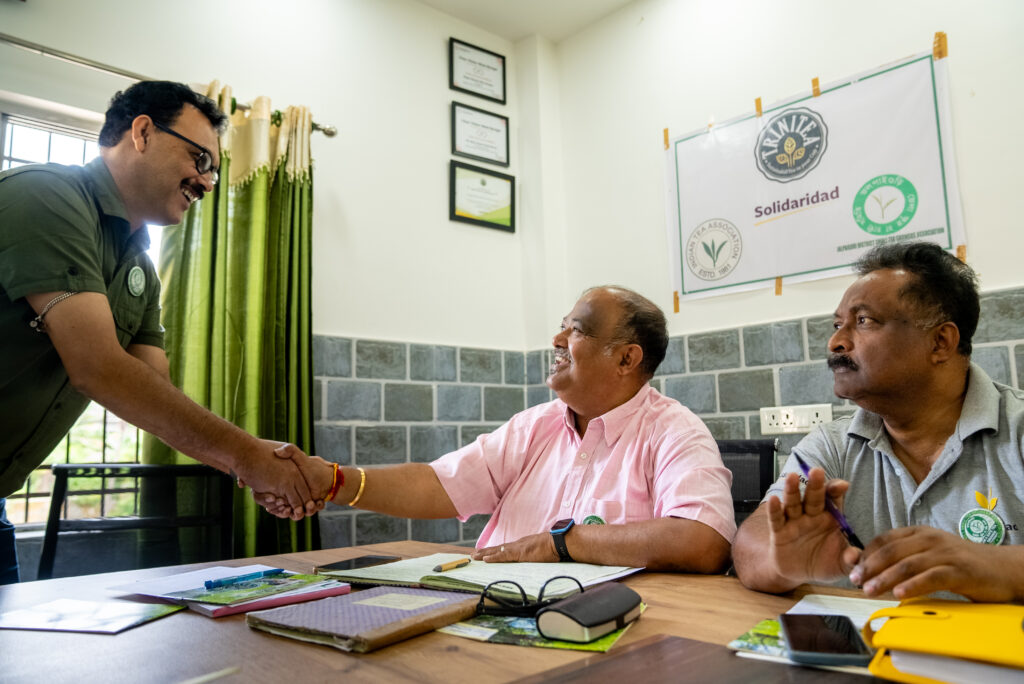
Solidaridad Asia strengthened direct market linkages between farmers and buyers through forward linkage models and traceability tools, ensuring better pricing, transparency, and timely payments. By eliminating intermediaries, farmers benefit from price discovery at the farm gate, higher returns based on quality, and reduced transaction costs.
- 17,942,515 individuals were activated to potentially purchase sustainable products through consumer campaigns focused on raising awareness on sustainable production and consumption.
- 105,719 metric tonnes of sustainably produced cotton, castor, palm oil, fruits and vegetables were sourced by brands supported through Solidaridad Asia projects.
In 2024, Solidaridad Asia strengthened market connection with Dutch and European companies. Prominent among them are East West Seeds, WE Fashion, Zeeman, O’Niel, Salling Group and Prenatal. Additionally, in the leather sector our collaboration with Dugros, Stahl continues to build on the activities initiated in 2022 and 2023. The other companies include Puratos, Hunkemoller, Cargill and Henkel.
Stories that Matter
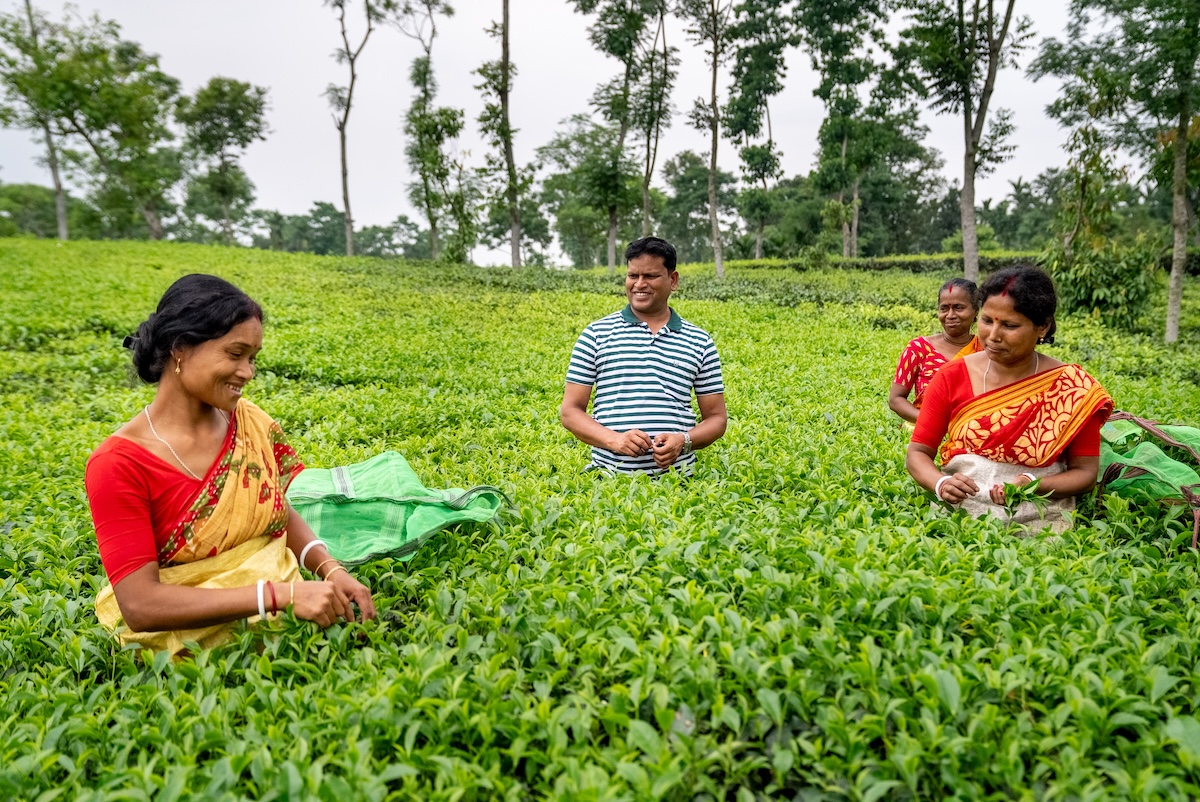
Tea grower Tapan Mandal takes us along to show his farm in India and tells his story! In India, many small-scale tea growers sell their harvest individually through supply chain brokers, which often results in a low price. Tea growers are now uniting into collectives and building their abilities to improve their position in the value chain and negotiate for better prices and terms. Some of the strengthened collectives are now supplying their tea leaves directly to the factories.
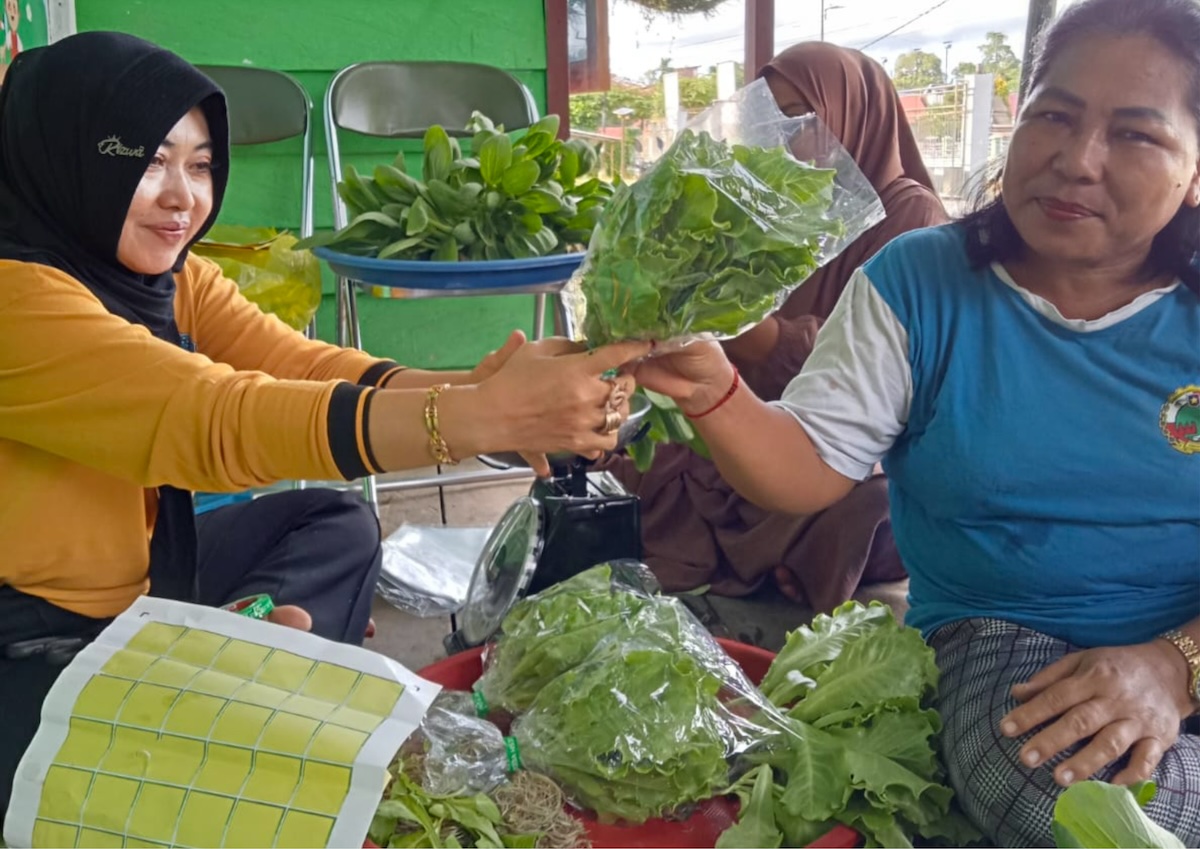
Last year, a funding announcement from the federal government in Indonesia made history. It was less about what it was for than who it went to. The funding for two local government programmes went to PKK Nehas Liah Bing, a women’s community-based organization in the East Kalimantan province.
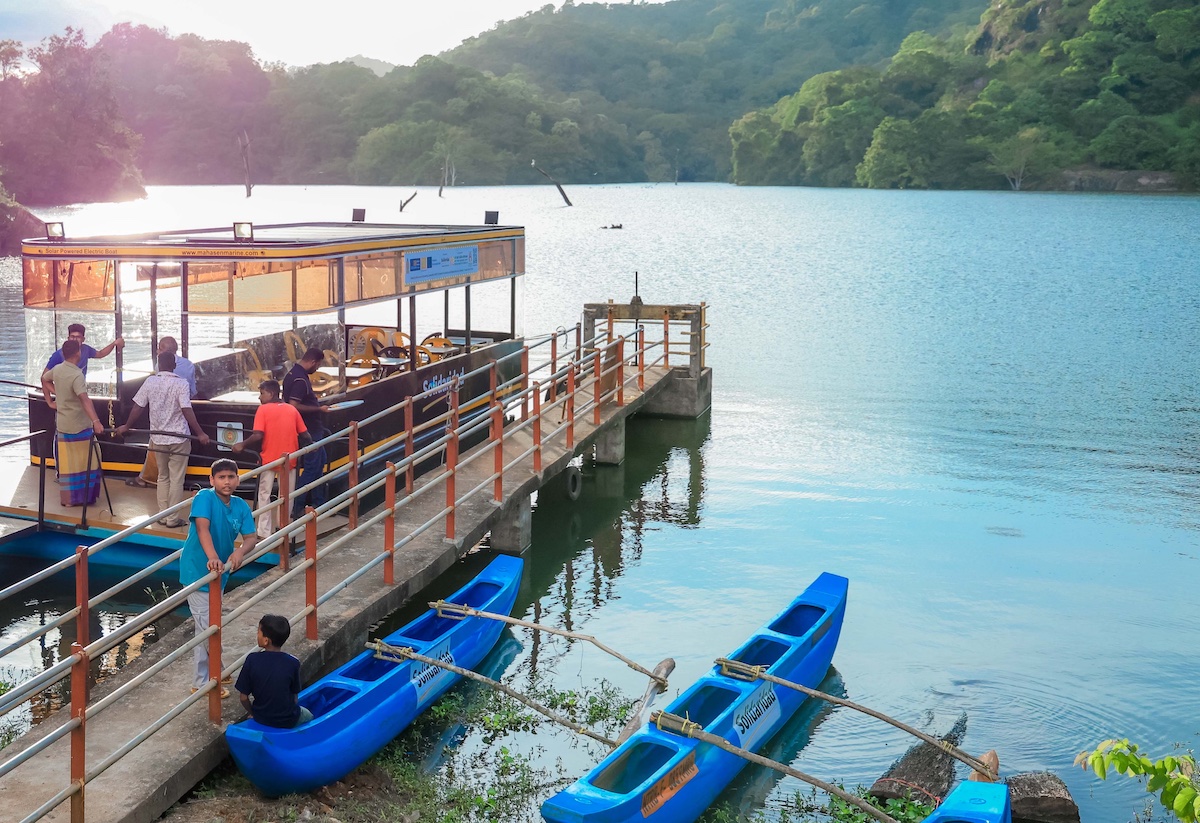
L. M. Hashan Buddhika beams with pride while giving a tour of his boutique hotel in Bandarawela in the Uva province of Sri Lanka. Tourism had been a mainstay on the island country until the pandemic hit hard in 2020. For Hashan, an innovative programme came at the right time to equip him with the skillsets needed to transform his ancestral property into a boutique hotel that practices sustainability and supports the local economy.
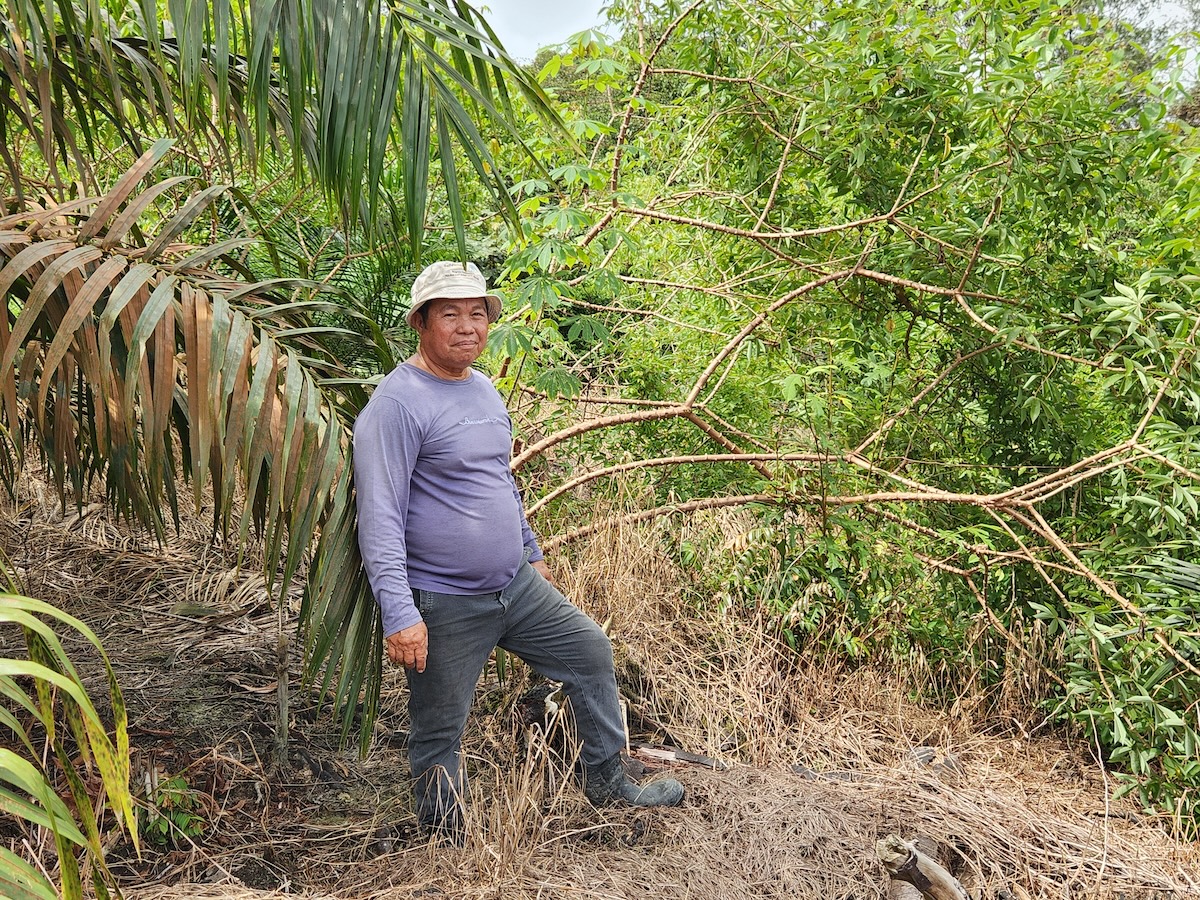
For years, Henry Jelaman was intrigued by the smallholder oil palm farmers harvesting fresh fruit bunches near his workplace. The former crane operator would watch the farmers with interest until the physical demands of his job grew to be too much. Henry began anew and ventured into oil palm farming in Sarawak, Malaysia. Now 10 years later this smallholder is improving his small farm with support from the Smallholder Support Programme.
Sustainability Solutions
Building new pathways
Improved access to nutritious food for local communities through regenerative agriculture, improved yield through locally-led water management models, reduction in emissions at factories due to circular economy interventions, better price realization for farmers through an alternative market model, our sustainability solutions are owned by the farmers, workers and factories we work with.
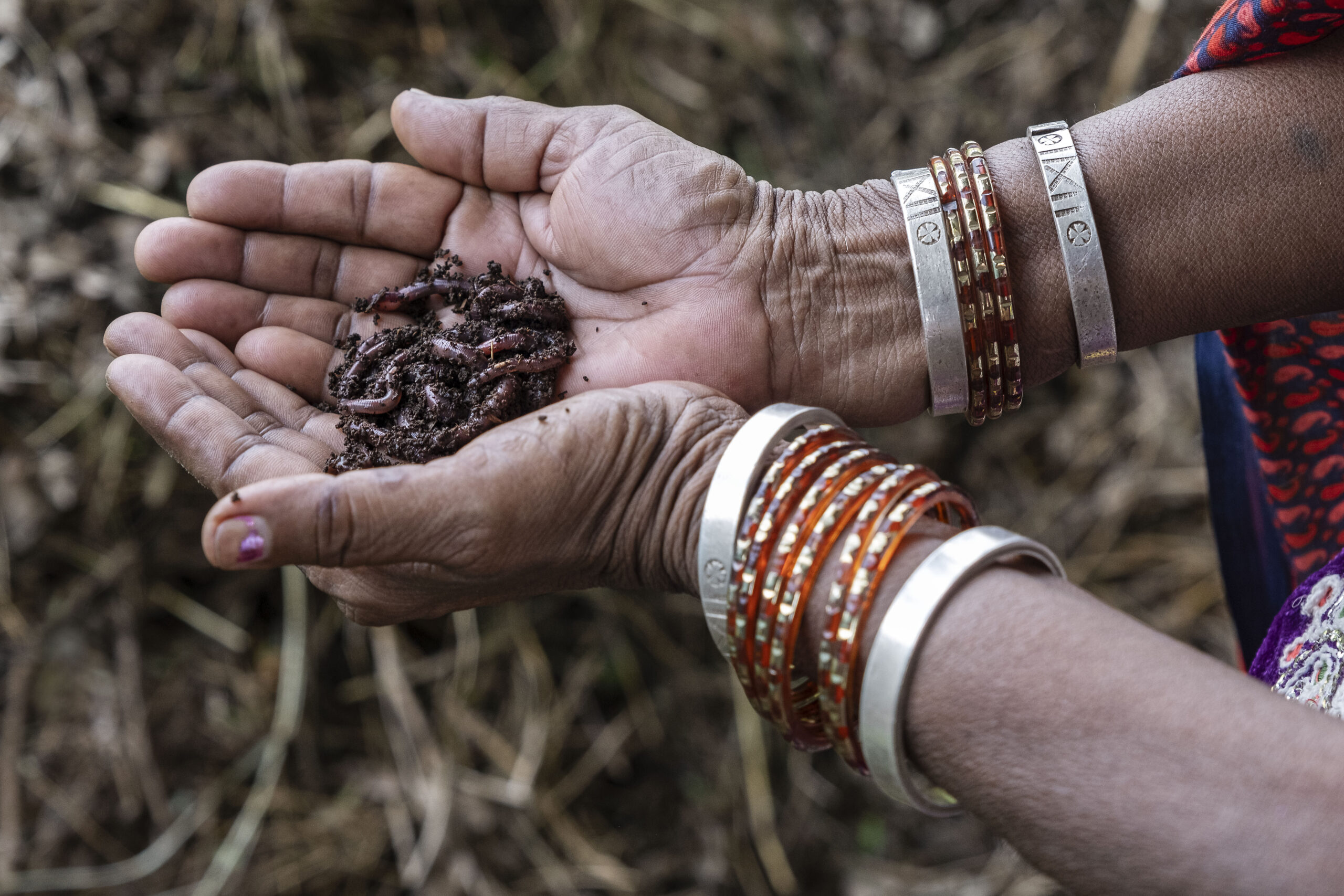
In Madhya Pradesh, India, the adoption of regenerative farming practices—among them, crop diversification, use of bio-based pesticides and fertilizers, and efficient water management—has improved farm incomes and local availability of nutritious and affordable food for 50,000 smallholder families. Around 100,530 hectares of land is now under sustainable management (including pasture) and 18,825 farmers have diversified into different crops. Nutrition gardens, or poshan vatika, not only contributed to availability of fresh and nutritious vegetables for household consumption but also towards significant savings for a family of five (around €200 per year). This improved dietary diversity for the farming families (meeting 4 of the 5 field-based criteria on dietary diversity framework) and reduced their expenses on medicines.
Solidaridad Asia is implementing groundbreaking locally-led water management models that are bolstering sustainable use of land and water for resilient agriculture.
In Bangladesh, co-creation of a community of practice for integrated water resources management has brought over 24,000 hectares of land under climate-smart and regenerative agriculture for soil and ecosystem regeneration. The local collectives for water management are helping over 70,000 smallholders in better land use, resulting in 16% increase in yield and 75% increase in profits, which is improving the local food system and addressing poverty. It is also enriching local biodiversity and improving climate resilience.
In India, 20,000 cotton farmers have adopted water-efficient practices namely furrow irrigation and trash mulching on more than 5,000 hectares of farm land, resulting in 0.5 billion litres of water use avoidance annually. Additionally, through construction of 100 farm ponds and rejuvenation of 3 community ponds to reduce water stress, approximately 45 million litres of rainwater have been conserved over a period of four years.
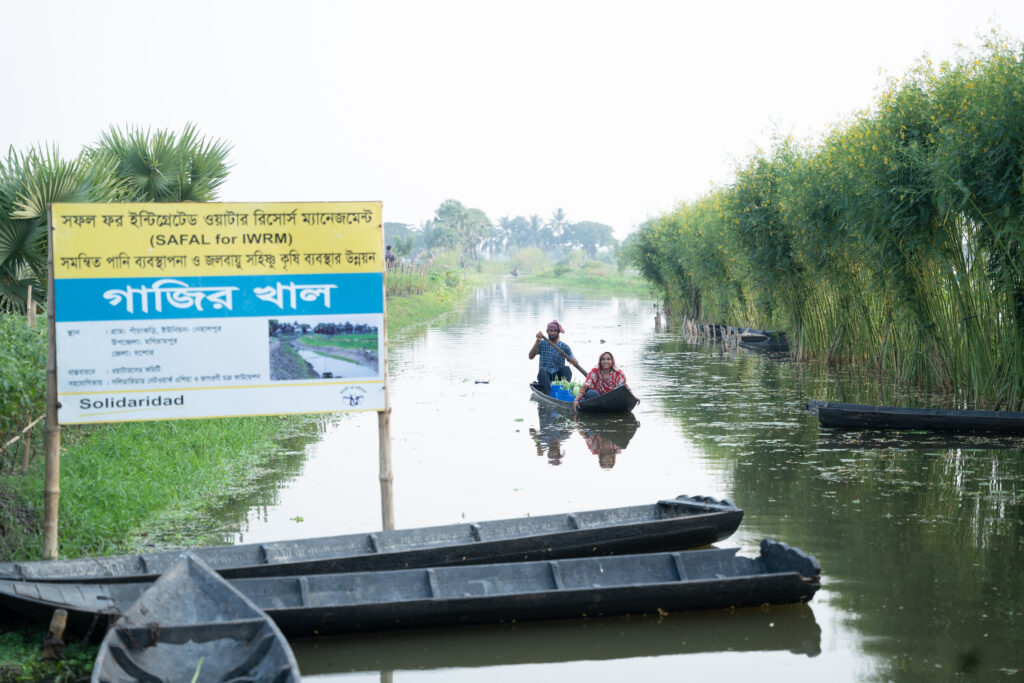
By integrating desalting machines, water optimization strategies, and accurate weighing systems at the process level, five tanneries supported by Solidaridad in India (Bantala cluster, Kolkata) have successfully mitigated approximately 150 tCO2-eq per year, culminating in reduction of 6,247.40 tCO2-eq over the past three years across Scope 2 and Scope 3 emissions. Furthermore, an impressive 1,220 tonnes of solid waste have been efficiently repurposed, including the recovery and reuse of 1,000 tonnes of salt in the tanning process, the transformation of 20 tonnes of trimmings and chrome shavings into bonded leather, the conversion of 40 tonnes of fleshing waste through tallow extraction, and the repurposing of 161 tonnes of sludge into paver blocks.
These circular economy interventions have collectively led to a reduction of 773.97 tCO2-eq annually, amounting to 54,141 tCO2-eq mitigated over the past three years across Scope 1, Scope 2, and Scope 3 emissions.
Further, the deployment of solar photovoltaic systems within the Bantala cluster is projected to avert an additional 808.6 tCO2-eq emissions annually. Altogether, these transformative interventions have resulted in 2.3 × 10⁵ tCO2-eq emissions being avoided over the past three years. For context, this is the same amount of CO2 absorbed by 230,000 trees growing for 40 years.
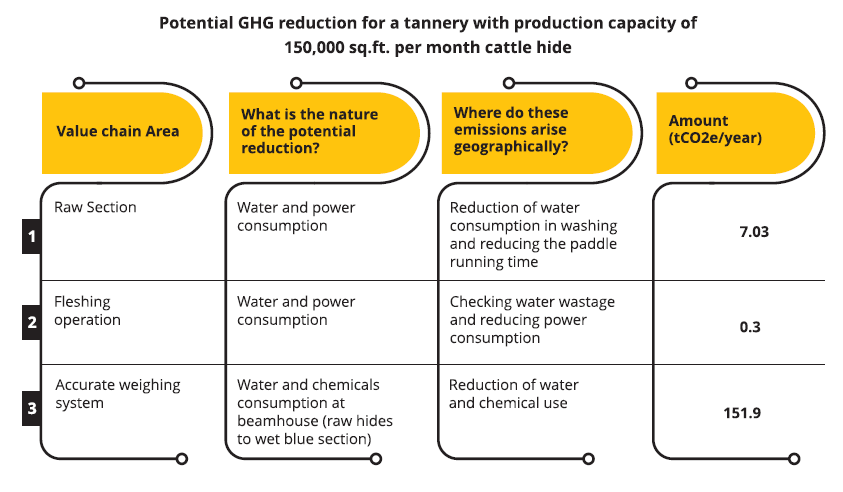
Bharatkhand Consortium, a federation of 105 farmer producer organizations (FPOs), was launched with the objective of leveraging collective strength of FPOs and agri-entrepreneurs for value-added products’ trade. It provides farmers access to high quality inputs at lower prices. It has also established a one-stop solution center for farmers known as Bharatkhand Krishi Bazar, which provides a complete agriculture solution to farmers for adoption of regenerative agriculture practices. FPOs and agri-entrepreneurs supported under the project have established custom hiring centres for enabling improved cost-effective access of farmers to agricultural equipment and machinery.
Farmers are supported with processing their produce into nutritious, high-quality, safe and sustainable food products. In 2024, Bharatkhand added 92 food products, from raw cereals, pulses, spices to semi-processed, processed and herbal products, traditional products including oils and fats. This initiative enables farmers to add value at the source, reducing reliance on traditional intermediaries. FPOs are trained in food processing, quality standards and branding and are directly linked to consumers through dedicated platforms and marketplaces. By creating a direct farm-to-consumer connection, the model ensures better price realization for farmers, promotes transparency, and offers consumers healthier, traceable food options.
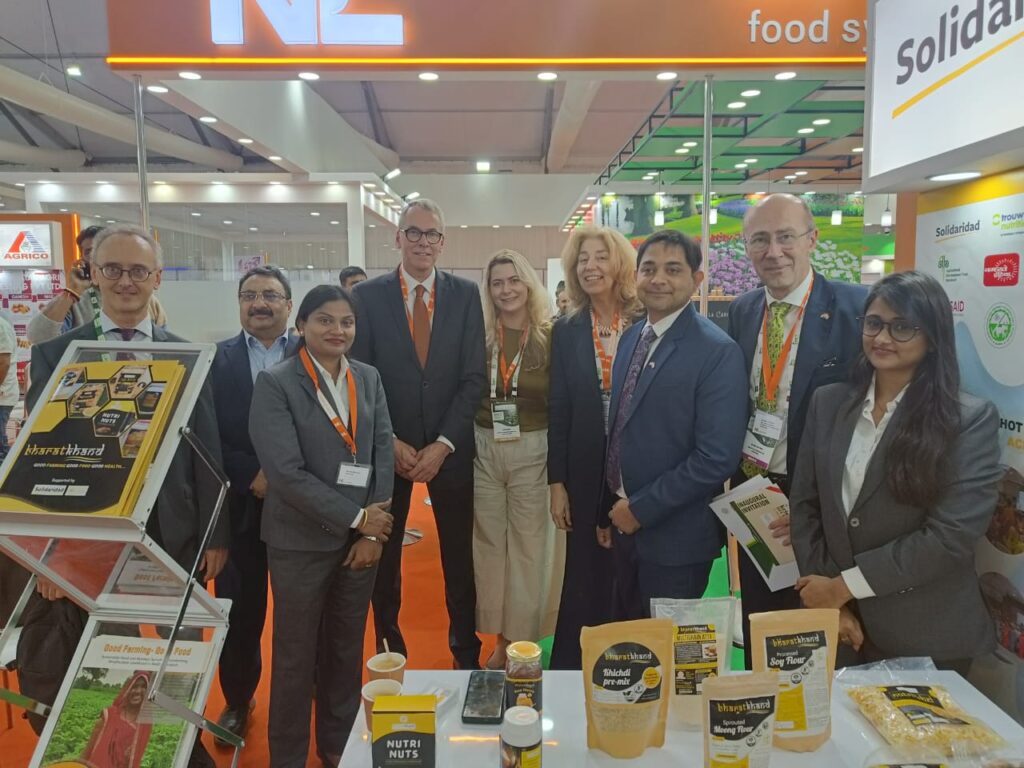
The Corporate Sustainability Due Diligence Directive (CSDDD) introduced by the European Union represents a significant shift towards mandatory compliance with rigorous environmental and social standards for companies operating within the EU or engaging in trade with EU-based firms. In response to this evolving regulatory landscape, the Compliance Toolkit is specifically tailored for MSMEs in the leather and textile sectors. It works on a self assessment mode where MSMEs can assess their risks across 21 components clustered around 8 broad parameters of social risk and create an action plan to mitigate the identified risks. This toolkit offers a structured approach to compliance assessment, covering both environmental and social metrics. We have conducted pilot tests with six MSMEs to check the reliability and comprehensiveness of the toolkit.
Across Asia, Solidaridad works towards inclusion of women in supply chains and follows the ‘Feminization of Supply Chain’ framework. This framework supports them through integration into formal supply chains, promoting livelihood diversification, sharing knowledge on good practices for increased incomes, ensuring market linkages, and helping them transition towards entrepreneurship.
In Bangladesh, in the districts of Noakhali and Lakshmipur, Solidaridad is promoting the sustainable cultivation of soybeans, with a market-focused approach. In 2024, the project engaged 200 women entrepreneurs in the branding, packaging, and marketing of soy-based products (such as tofu, soy nuggets, soy roti and soy paratha). These products now feature traceable QR codes, and are sold locally and in urban superstores across Bangladesh.
The collaboration with Fowzia Foods, a women-led startup, has helped scale up the training of cultivators in good practices and provided them with a direct linkage to markets. The entrepreneurs associated with the project are now earning an average annual income of BDT 108,000 (€855).
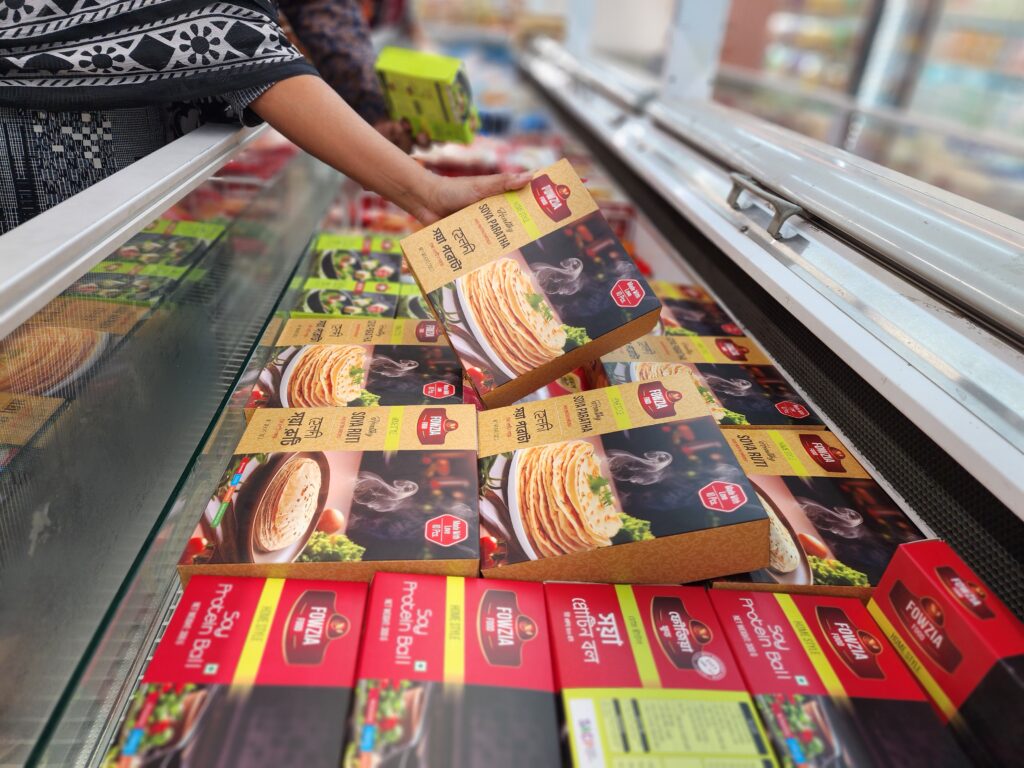
Organization & governance
Bolstering our mission
The year 2024 has been a transformative year for Solidaridad Asia, marked by strategic shifts and key additions that bolster our mission to innovate and drive sustainable change.
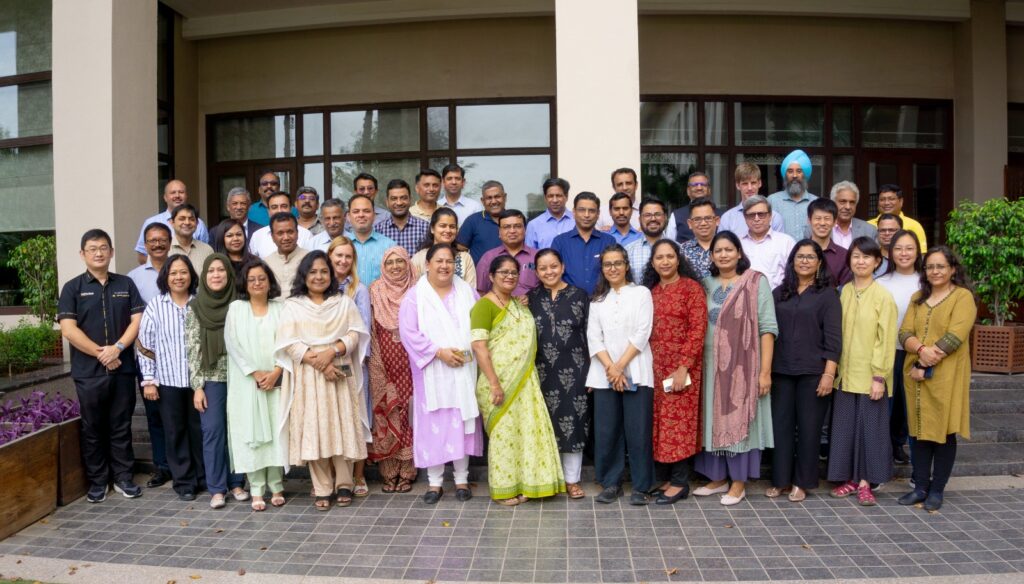
New Board Member: We are delighted to welcome Amit Jain to the CSB Asia. As the Director of African Studies at Nanyang University, Singapore, Amit brings a wealth of knowledge and a fresh perspective to our board. His expertise is particularly valuable as we continue to diversify our board’s composition, now featuring seven distinguished members from China, Japan, India, Bangladesh, Singapore, and Indonesia.
China Office Update: Our China Country Office has been granted the rare status of a branch office under the Solidaridad Network Secretariat. This change is pivotal as management responsibilities transition to the secretariat on an interim basis, while Solidaridad Asia continues to extend its support to enhance the office’s capabilities in aligning with our overarching goals.
Expansion into Nepal: This year, we embarked on an exploratory mission to establish operations in Nepal, focusing on sectors such as tea, sugarcane, dairy, and textiles. This move is part of our strategic initiative to address the needs of local communities while fostering sustainable practices in new geographic areas.
Regenagri Initiative: In a significant development, Solidaridad Asia’s CSB approved the buy-back of 50% of the shares of regenagri, the world’s leading regenerative standard, from the Solidaridad Network Secretariat. Now holding complete ownership, our next phase aims at divesting these shares to create a multi-stakeholder shareholding structure. This will include farmers, businesses, and NGOs, thus democratizing ownership and reinforcing our commitment to sustainable agricultural practices across the region.
Solidaridad Asia is firmly committed to a policy of equal opportunity in all HR practices based on performance and competencies. During 2024, 100 staff and associates were recruited for different positions across Solidaridad operations in Asia, of whom 26% are female. It is our constant endeavor to ensure women are recruited across all countries of operation and across all hierarchical levels.
Our overall staff composition at the end of 2024 per country and gender was as follows:
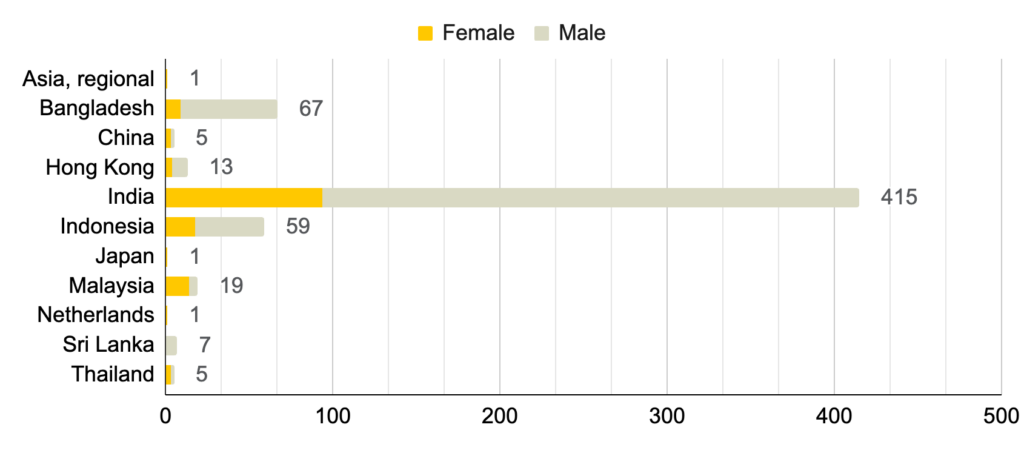
Awards
Solidaridad Asia received multiple accolades and awards in 2024, validating the work we do with farmers and workers, and amplifying it further.
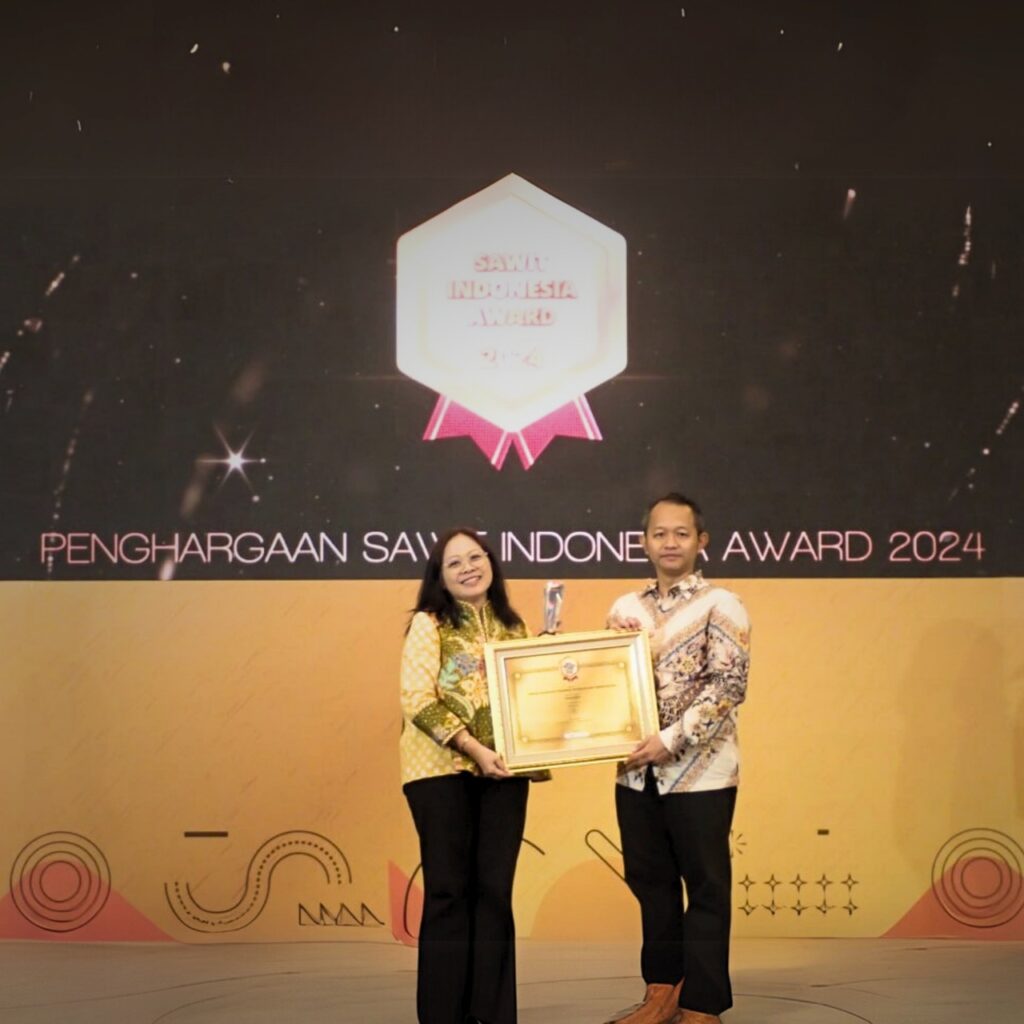
- In Indonesia, Solidaridad was presented the Majalah Sawit Indonesia award under the ‘Collaborative Institution Driving Sustainable Palm Oil Certification’ category in December. Majalah Sawit Indonesia is a preeminent publication that covers Indonesia’s palm oil industry—and this time, Solidaridad was the only civil society organization to be given this recognition among 47 other recipients.
- The District Government of Sintang, West Kalimantan, awarded our team in Indonesia with the Development Partner Award (MPA) across two categories—People’s Economy and Governance. Both awards reaffirm the crucial role played by Solidaridad in fostering trust among local communities and government entities, facilitating greater collaboration with stakeholders, and promoting sustainable practices within the oil palm industry.
- In India, Solidaridad was honored with the Global Environment and Energy Foundation (GEEF) Award 2024 under the ‘Industrial Water Project of the Year’ category. The recognition places the spotlight on our initiatives to reduce water consumption, recycle pollutants and implement process modifications in Panipat’s textile industries.
- Another highlight was the recognition accorded to the Nico Roozen Center of Excellence for Regenerative Agriculture, run by Solidaridad Asia in Sehore, Madhya Pradesh. The centre was conferred with the Agri Business Summit Award 2024, under the ‘Society Creative Impact in Agriculture’ category, recognizing the centre’s contributions to the cause of sustainability.
- The Soy Sustainability Award at the International Soy Conclave 2024 held in Indore, Madhya Pradesh highlighted Solidaridad’s commitment to advancing sustainability in soybean farming.
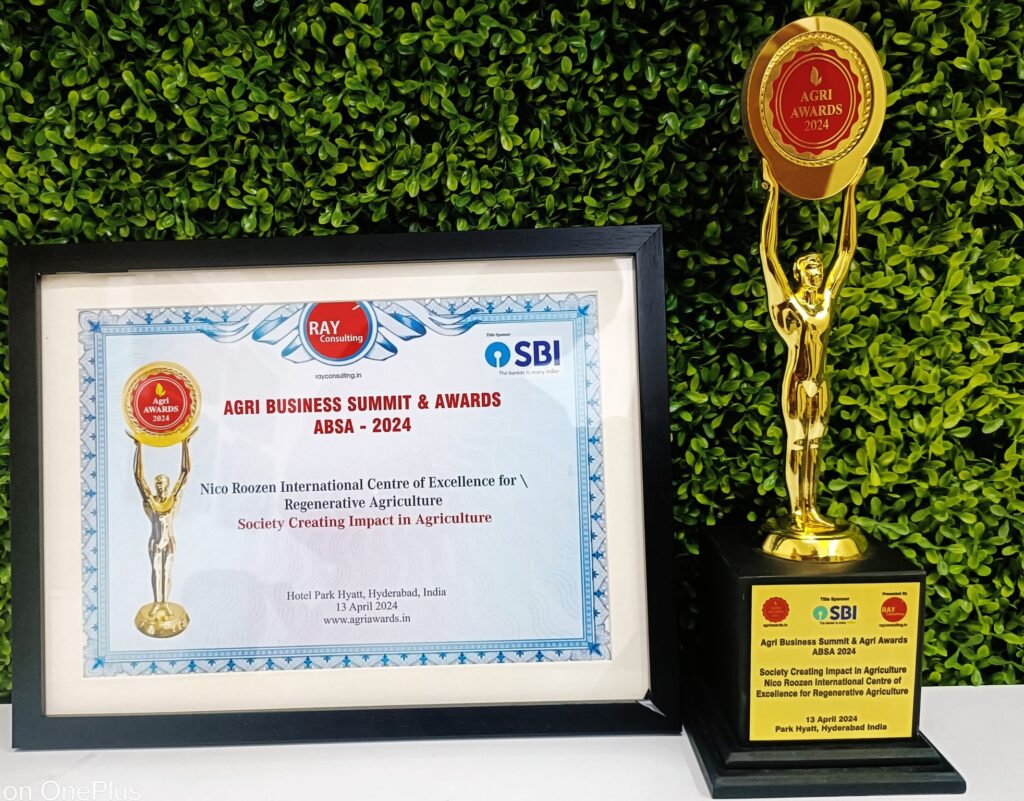
Campaigning for Sustainability not only in agriculture, but also as a consumer choice
- In India, the Safe and Sustainable Tea Campaign reached close to 11 million consumers. The campaign featured videos spreading the message of safe and sustainably-grown tea and its benefits for consumers, including in regional languages to increase outreach.
- In partnership with leading publication Prothom Alo and national broadcaster Bangladesh Television, Solidaridad reached out to nearly 5 million people in Bangladesh – amplifying small tea growers’ concerns and Solidaridad interventions, while raising awareness on what goes into making a cup of sustainable tea.
- A campaign to promote sustainable consumption of palm oil was launched in India. In 2024, the campaign focused on dispelling myths and promoting scientifically backed facts on palm oil. Activities were offline in nature, with a workshop and college talk shows.
- A week-long social media campaign, Let’s Listen, on gender-inclusive supply chains and the role of women in sustainable farming communities featured inspirational stories and voices of women farmers and entrepreneurs across Asia. The campaign garnered more than 50,000 impressions across platforms.
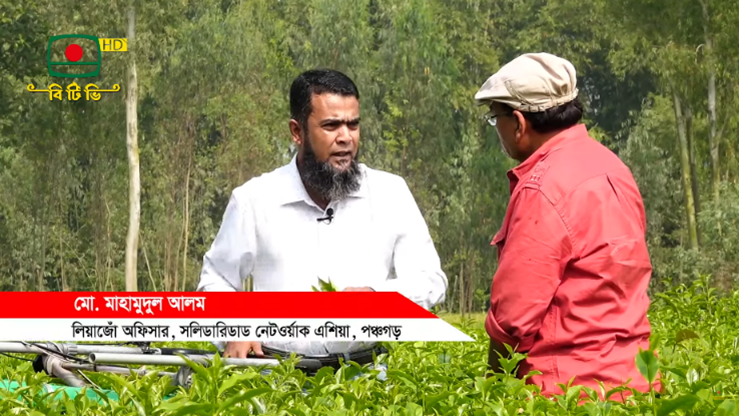
Driving Visibility, Credibility And Positioning For The Work We Do With Farmers, Workers
In 2024, the communications team in Asia strengthened Solidaridad’s visibility and positioned the organization as a thought leader on sustainable and regenerative agriculture, smallholder-inclusive policies (in the wake of the European Union Deforestation Regulation), feminization of supply chain, rural entrepreneurship models and pollution management in MSMEs.
PUBLICATIONS: Communications led and, in some cases, supported the creation of high-quality publications, including G20/T20 policy briefs, research-driven reports on regenerative agriculture and pollution abatement in Asia, affirmative gender actions, among others.
MEDIA ENGAGEMENT: The team achieved more than 250 media mentions across national and regional publications, from The Hindu and Firstpost in India, to Prothom Alo and The Daily Star in Bangladesh, The Edge Malaysia, Kompas TV and InfoSAWIT in Indonesia.
SOCIAL MEDIA: Features like Yellow Carpet, Photo of the Week, Stat of the Week, farmer stories from the field have amplified farmer perspectives on sustainability, challenges and opportunities with regenerative agriculture while also recognizing the impactful work we do with the support of our donors and partners.
EVENTS: From workshops and training sessions for farmers to policy discussions and roundtables, inaugurations, felicitation and award ceremonies, to setting up stalls and pavilions at national/international fairs/expos, and much more, communications supported our programmes with visibility. More than 50 such events were held across Asia in 2024 reaching out to more than 50,000 people.
Solidaridad Asia’s strategies and interventions are multi-faceted and are operationalized at scale covering over 1.4 million farmers. Tracking the progress and assessing the outcomes over the year remains a priority. At Solidaridad Asia, the result tracking is managed through a series of interventions adopting most suitable methodologies. Key methods and process adopted are:
Assessing Environmental Outcomes
- Among the key interventions that Solidaridad Asia promotes is regenerative agriculture, which focuses on optimum use of chemicals and improvement in soil health. The chemical use reduction was tracked through a farm diary and based on a sample survey with farmers. IPCC prescribed co-efficients and calculation methods were used to assess the C02e reduction.
- Measuring GHG emission reduction from the textile and leather industry is complex. We partnered with agencies like TUV to estimate the GHG emissions.
- Regenerative agriculture also promotes water use efficiency. In 2024, we adopted volumetric measurement for assessing the litres of water use avoided. Digital advisory through hyper-local weather stations has helped more than 500,000 farmers in their irrigation plans. To understand the outcomes of digital advisory, we conducted focus group discussions with farmers, which provided crucial insights on the use of the right and timely advisory and helped us calculate the quantity of water use avoided due to right irrigation schedules.
Assessing Social Outcomes
Participation of smallholder farmers in public and private sector dialogues and their voices being heard are the cornerstone of interventions of Solidaridad Asia. The participation of women in formal supply chains, a concept promoted by Solidaridad Asia, ensures gender inclusivity. To assess these, we:
- Tracked the representation made by the smallholder farmers associations and collectives and conducted key informant interviews with policymakers and stakeholders to understand the contributions made by Solidaridad.
- In the assessment of women in formal supply chains, we tracked the business records of the private sector organizations and conducted women farmer surveys to assess their participation in the formal supply chains.
Measuring Economic Outcomes
Improving the yield, and reduction in prices are critical ingredients to ensure economic development. To assess the changes, in 2024, we:
- Conducted a farmer survey with structured questionnaires
- Conducted small sample survey to understand the outcomes from key interventions
Additionally, in one of our programmes, we conducted Social Return of Investment calculation using the methodologies developed by SROI network, indicating that the particular programme on food and nutrition security in Madhya Pradesh India delivered an SROI of 6 euros for every euro invested.
To ensure data-driven monitoring, our efforts are underway to have a digital database of all the farmers. Bangladesh, Malaysia and few programmes in India have developed digital dashboards for farmer outreach.
Solidaridad Asia continued the learning support for RECLAIM sustainability! programme through fortnightly dissemination of articles and publications (secondary), and through webinars and workshops and learning briefs. We organized a total of 8 learning sessions (7 offline learning sessions and 1 online webinar) on emerging themes, evaluation and research studies. Additionally, monthly knowledge digests were shared to enhance team’s knowledge on various relevant topics and themes.
Finance
On par performance
In Asia, both income generation and expenditure on projects showed almost on-par performance compared to 2023.
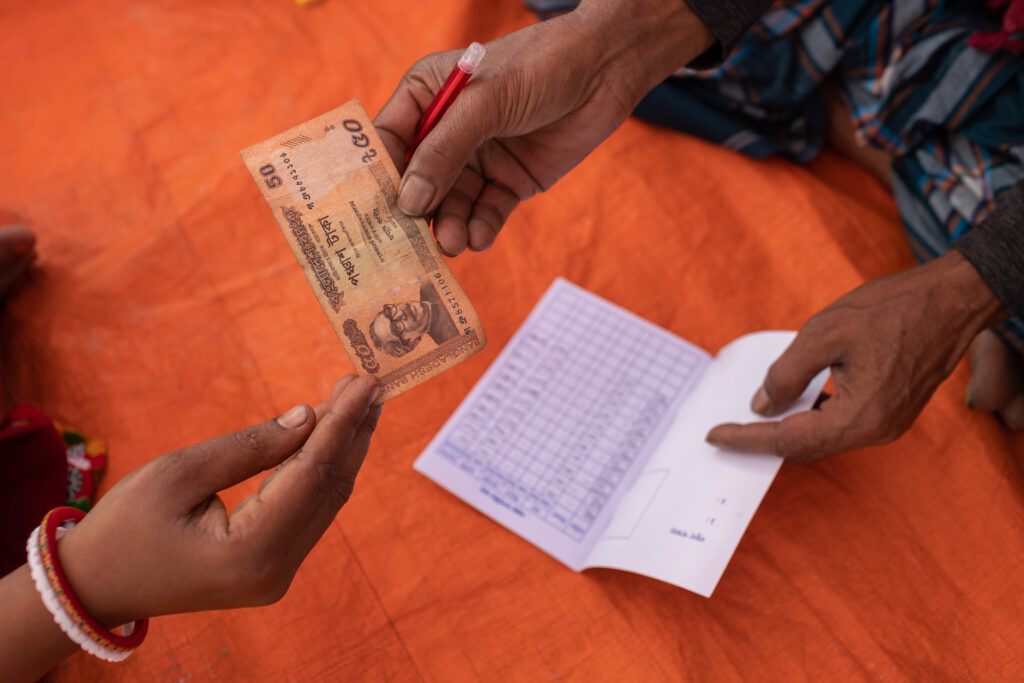
In 2024, the overall income increased marginally by 4%. Even though we have not made a significant increase in the budget for 2024 when compared to 2023 (almost on par), we have been able to leverage the same budget for increased outreach and outcomes. This comes at the backdrop of few EU-funded projects reaching their project lifecycle, indicating the ability of the region to sustain the financial budgets.
The share of revenue through Solidaridad entities increased from 44% to 55%, however these are projects which fundamentally require a European entity to be the lead agency. While local corporate social responsibility funding provides an opportunity to expand the local fund portfolio, these projects have the potential to distract given the nature of funds and the time frame in which the project needs to be delivered. Solidaridad Asia has taken a conscious choice of selective partnership on CSR funds that are closely aligned with our mission.
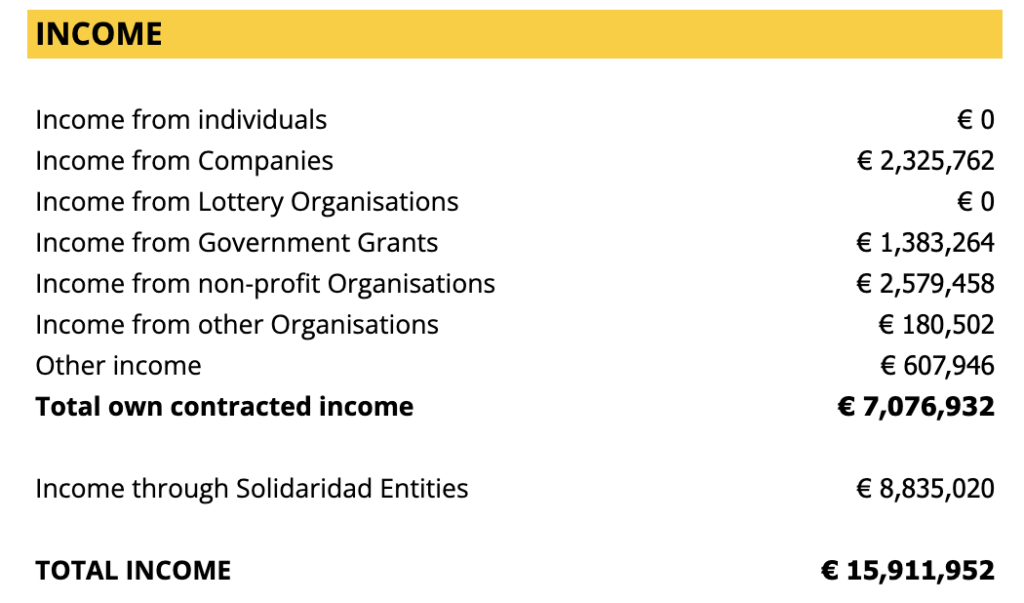
We see on par expenses on the activities when compared to 2023. The increase in the employee costs is attributable to the near -50% increase in the farmer outreach and reduction in partner costs.
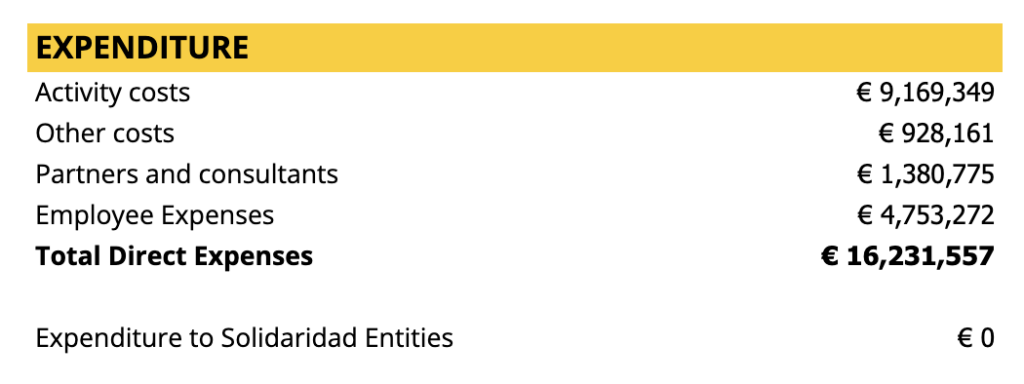
All information above is based on the unaudited figures over 2024. The official audited financial statements over 2024 will be uploaded here as soon as they are available.

